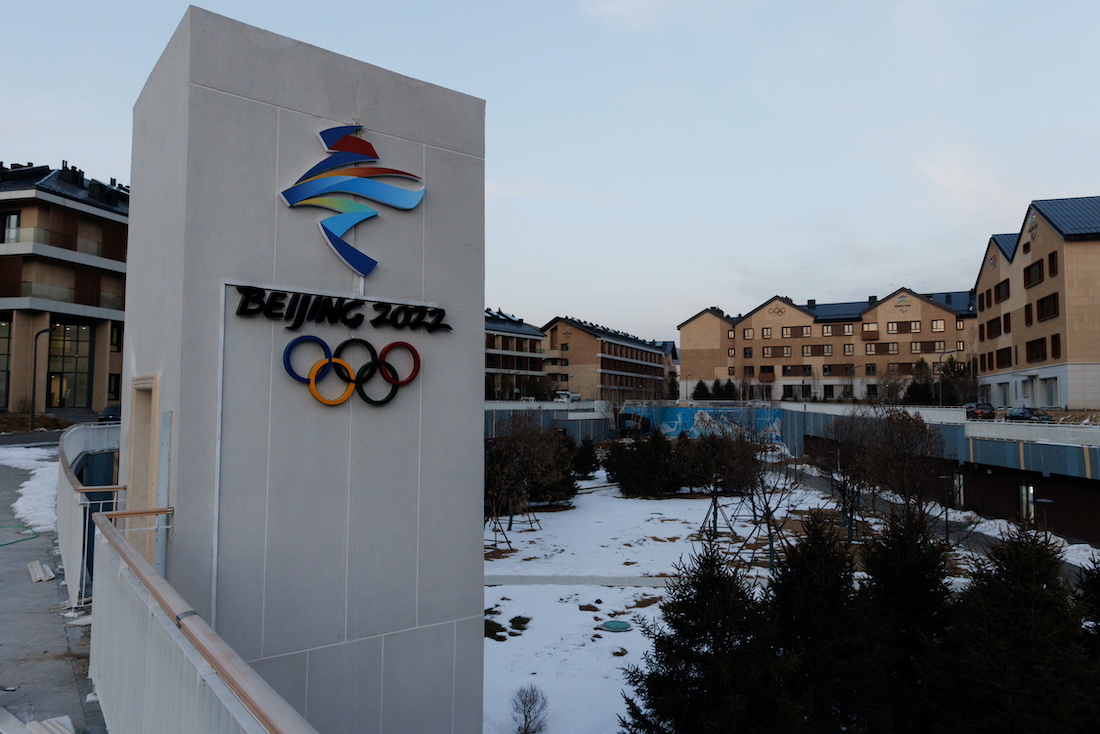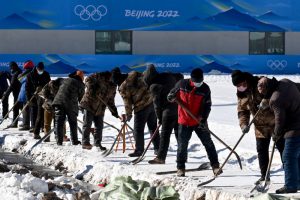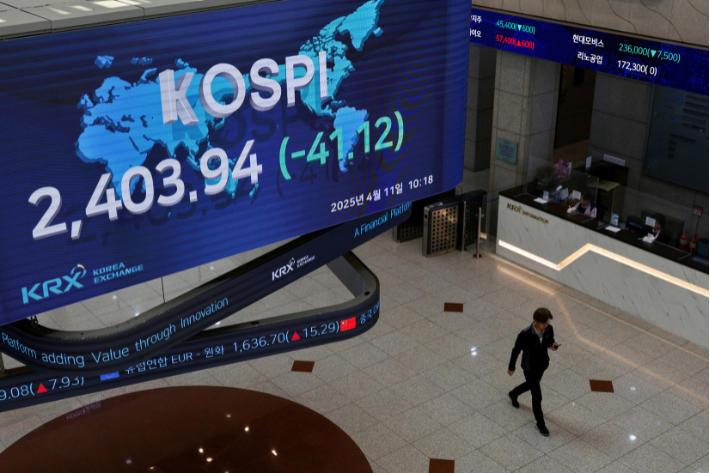China warned on Tuesday that a diplomatic boycott of the Beijing Winter Olympics by US government officials could harm two-way dialogue and cooperation in important areas.
Foreign ministry spokesman Zhao Lijian said the United States’ “plot” to disrupt the Olympics was doomed to fail and would lead to a loss of “moral authority and credibility”.
“The US attempt to interfere with the Beijing Winter Olympics out of ideological prejudice, based on lies and rumours, will only expose [its] sinister intentions,” Zhao Lijian told reporters at a regular media briefing in Beijing.
China opposed the boycott, which violated the “political neutrality in sport” and would take “resolute countermeasures”, Zhao said.
The US move on Monday is a rebuke of China’s human rights record, but it stops short of preventing US athletes from competing.
The decision came after Washington spent months wrangling over what position to take on the Games, hosted in February by a country it accuses of “genocide” against Uyghur Muslims in the northwestern Xinjiang region.
The initial reaction to Monday’s decision by the Chinese embassy spokesman in Washington was muted. It said the boycott would have no impact on the Games and “no one would care about whether these people come or not.”
But the move was broadly welcomed by rights groups and politicians in the US, where President Joe Biden has been under pressure to speak out against Chinese rights abuses.
White House Press Secretary Jen Psaki said the administration would send no diplomatic or official representation to the Games given China’s “ongoing genocide and crimes against humanity in Xinjiang and other human rights abuses.”
Sending official representation would signal that the Games were “business as usual,” Psaki said. “And we simply can’t do that.”
“The athletes on Team USA have our full support. We will be behind them 100 percent as we cheer them on from home,” she added.
IOC: Athletes Beyond Politics
The International Olympic Committee called it a “purely political decision for each government, which the IOC in its political neutrality fully respects.”
The announcement “also makes it clear that the Olympic Games and the participation of the athletes are beyond politics and we welcome this,” an IOC spokesperson said.
The Olympics boycott is part of a complex diplomatic balancing act.
Biden’s administration has left Trump-era trade tariffs on China in place and continues to order naval patrols through sensitive international sea lanes that China is accused of trying to bring under its control.
However, with Biden also emphasizing the need for dialogue, critics on the right say he is being too soft.
This made the 2022 Games a political flashpoint.
Members of Team USA, their coaches, trainers and other staff will still receive consular and diplomatic security assistance, State Department spokesman Ned Price said.
Asked about calls for private businesses to end any Winter Games sponsorships, he stressed that the decision was up to them.
Campaigners say that at least one million Uyghurs and other Turkic-speaking, mostly Muslim minorities have been incarcerated in camps in Xinjiang, where China is also accused of forcibly sterilizing women and imposing forced labour.
• AFP, Reuters with additional editing by Jim Pollard
ALSO SEE:
Alibaba Among Top Six China Stocks Worth $1tn Facing US Delisting
China Stocks Delisting From US Puts $1.1 Trillion at Risk
China suspected in US defence industry cyber attack
US-China tensions force cancellation of Facebook-led undersea link






















